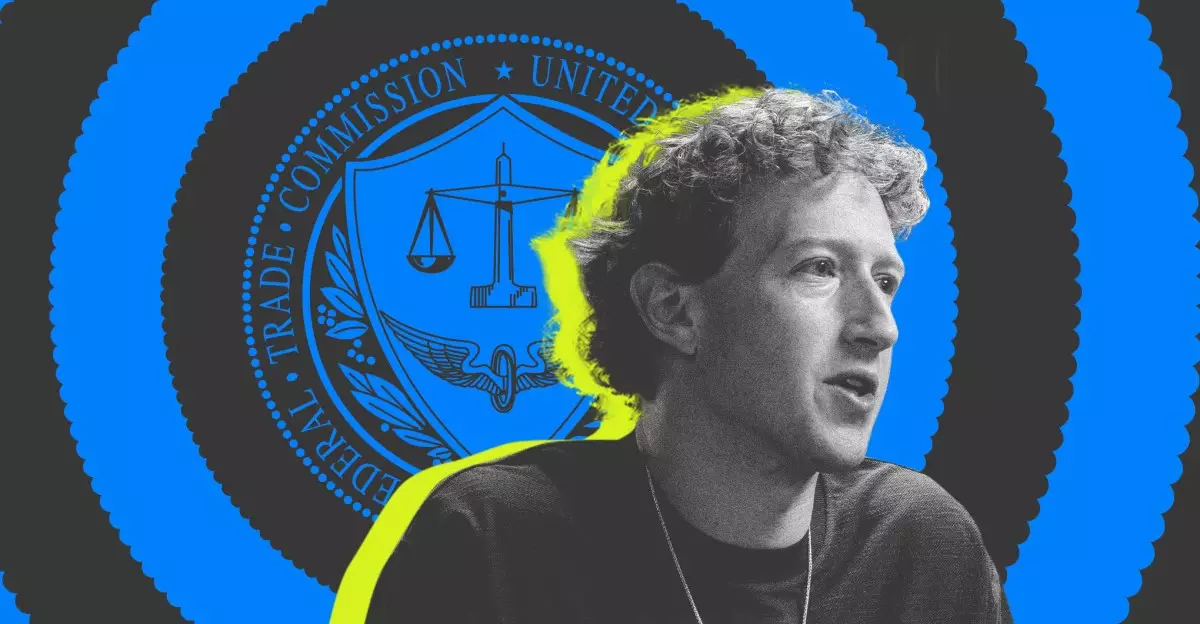In the ever-shifting landscape of technology, few narratives are as riveting as that of Meta Platforms Inc., formerly known as Facebook. The digital realm is replete with tales of ambition, innovation, and transformation, yet few exemplify the enormous potential for divergence as starkly as the story of Meta’s decisions. This article dives into the myriad contemplations and strategies that CEO Mark Zuckerberg articulated during recent testimonies, which cast a shadow on the very foundations of a social media titan. What if the winds had blown differently? What if Meta had decided to pursue alternate routes? The implications for the digital ecosystem could have been monumental.
Zuckerberg’s Testimony: A Window into Strategic Thinking
Zuckerberg’s recent courtroom testimonies paint a vivid picture of a leader constantly grappling with competition, market dominance, and the threat of emerging platforms. The atmosphere in the federal courthouse echoed a sense of impending accountability, not just for Meta, but for the very industry it occupies. During the prolonged nine-hour session, Zuckerberg defended Meta’s strategic acquisitions of Instagram and WhatsApp amidst fierce scrutiny from the Federal Trade Commission (FTC). The crux of the FTC’s argument hinges on the assertion that these acquisitions were not just strategic but a preemptive strike against potential rivals. What does this reveal about Zuckerberg’s mindset? It suggests a man driven by a profound fear of obsolescence, constantly on the lookout for the next wave of disruption.
Zuckerberg’s characterization of the social media market as “fluid” signals his acknowledgement of the rapid transitions dictating the marketplace. His mention of competitors like TikTok and YouTube reinforces the idea that in tech, the landscape can shift overnight, illuminating his awareness of the precariousness that surrounds market leadership. Strikingly, rather than offering deterministic answers, he opted for nuanced reflections on competition, revealing an understanding that meta-products can indeed overlap with those of rivals—an understanding that might have sparked different strategic directions had circumstances shifted.
Missed Opportunities: The Speculative Landscape
The discussions of what could have been are particularly captivating. Imagine a world where Zuckerberg’s $6 billion bid for Snapchat in 2013 had been met with acceptance. The acquisition could have propelled Meta into a distinctly different trajectory, creating a powerhouse of multimedia storytelling and ephemeral content. Instead, Snapchat continued to carve out its niche, and Meta’s competition with it evolved into a struggle for relevance and innovation through imitation.
Furthermore, one can’t help but ponder the implications of Zuckerberg’s musings on wiping Facebook’s friends list clean to recapture the thrill of connection. This radical idea illustrates a deep-seated yearning to invoke the early excitement of social media, a sentiment likely felt by many users grappling with the platform’s transformation into an ad-laden conglomerate. Yet, one must question: would radical changes like this alienate the user base further, or perhaps reinvigorate loyalty through a sense of fresh beginnings? The ongoing courtroom deliberations signify that these philosophical quandaries are intrinsic to Meta’s core, yet they highlight the ongoing complexities surrounding user engagement.
The Reality of Monopoly: Ethics vs. Business
What the FTC’s investigation underscores is not simply a battle for market share, but a profound existential inquiry into the nature of monopoly in the digital age. The agency’s definition of the market appears to carefully dissect the personal social networking space to establish a perceived monopoly. This leads us to the ethical dilemma: When does a company’s innovation and market acquisition strategy shift from smart business to anti-competitive tactics? Meta staunchly contests this characterization, suggesting that their acquisitions have enhanced the potential of new entrants rather than stifling them.
Yet, as Zuckerberg navigated the complexities of the legal arguments against him, one must reflect on whether these “enhancements” genuinely support diversity in digital communication or simply fortify Meta’s dominion. His assertions reveal a juxtaposition where ethical business practices can conflict with the aggressive nature of technology growth, prompting a provocative dialogue about the moral responsibilities of digital giants. The implications of this discourse are vital as stakeholders continue to evaluate how growth and competition define the tech landscape.
Internal Considerations and External Perceptions
Internal communications and executive decisions cited in court become a poignant commentary on Meta’s consciousness of its role and responsibilities. The fear of falling behind competitors like Instagram, combined with anxiety regarding users’ engagement with WhatsApp, speaks volumes about corporate self-awareness amid an increasingly competitive narrative. Such documents offer a glimpse into the psyche of Meta’s leadership, who were perhaps acutely aware that their path could veer sharply into obscurity if innovation stagnated.
Meta’s evolution is a narrative filled with ‘what-ifs’ that compel us to consider the broader implications of leadership decisions in the tech sector. The digital marketplace thrives on unpredictability; as Zuckerberg fights to maintain Meta’s dominance, he embodies the relentless pursuit of staying ahead. Underneath this pursuit lies a cautionary tale of ambition intertwined with ethical considerations—one that could well shape the future of social media and, ultimately, how we connect in the digital realm.


Leave a Reply